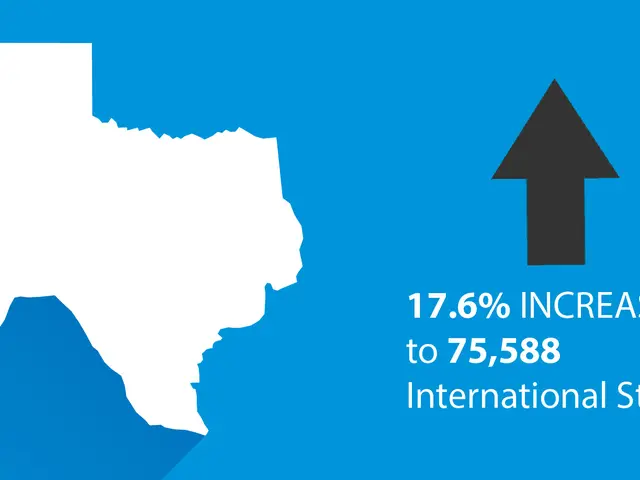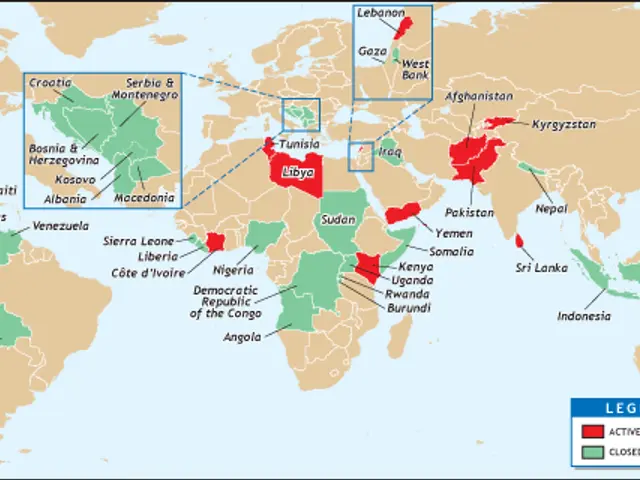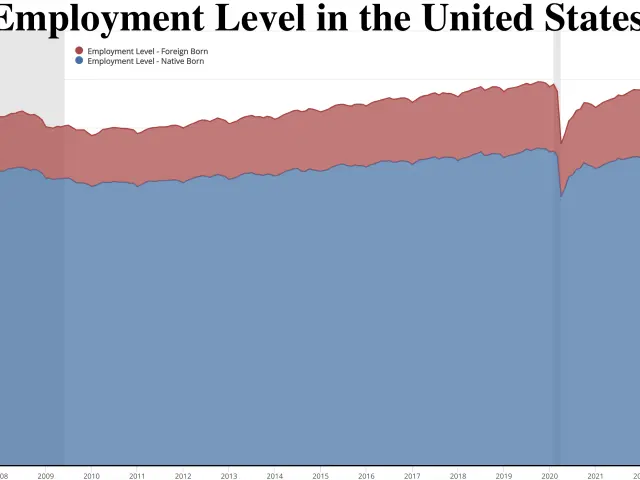Over 1,600 fatalities attributed to cholera in Sudan reported.
Sudan Faces Severe Health Crisis Amid Ongoing Civil War
The World Health Organization (WHO) has described the health situation in Sudan as a catastrophic humanitarian crisis, with over 1640 cholera-related deaths and nearly 60,000 cases recorded since August 2022.
In the third year of the civil war in this African nation, the containment of the epidemic is proving challenging. Millions of people have fled the conflict between the government army and militia, living in cramped conditions in refugee camps with poor hygiene and limited access to clean water. This has led to the rapid spread of infectious diseases, according to the WHO report.
Additionally, many hospitals in Sudan have been destroyed or looted, further exacerbating the health crisis. The WHO report also indicates a sharp increase in dengue fever cases, and reports of disease cases in refugee camps in neighboring countries such as Chad and South Sudan, where accommodation of refugees is increasingly difficult.
The ongoing conflict has resulted in the collapse of approximately 70-80% of health facilities in Sudan, including the capital Khartoum, due to conflict-related damage, lack of qualified personnel, and resource shortages. Displaced populations face elevated health risks, including malnutrition and lack of essential services.
Sudan is also battling outbreaks of measles, exacerbated by poor sanitation, crowded living conditions, and disrupted healthcare. An estimated 3.2 million children under the age of five suffer from acute malnutrition due to the conflict's disruption of food supplies and healthcare. The conflict has also resulted in high maternal mortality and complications like obstetric fistulas due to obstructed labor and the lack of timely medical interventions.
Controlling epidemics and delivering healthcare continues to be difficult due to disrupted supply chains, healthcare workforce deficits, limited aid, and pervasive insecurity. The war has severely damaged Sudan's pharmaceutical production and supply chains, reducing the availability and affordability of essential medicines. Aid efforts are further complicated by ongoing violence and insecurity affecting both healthcare workers and patients.
In summary, Sudan's ongoing civil war has devastated the healthcare infrastructure, severely limited access to care and essential medicines, and fueled deadly epidemics like cholera and measles. Displacement, malnutrition, and targeted attacks on health services compound these challenges. Controlling epidemics remains extremely difficult due to broken supply chains, healthcare workforce deficits, limited aid, and pervasive insecurity.
- The Commission has also been involved in the preparation of the report about the severe health crisis in Sudan, highlighting the impact of chronic diseases, medical-conditions, and accidents on the population.
- As part of the health and wellness sector, fitness and exercise are vital for maintaining physical health, especially during times of crisis like the war in Sudan.
- Mental health is another critical concern, as people dealing with wars and conflicts often suffer from trauma, stress, and anxiety.
- CBD, a cannabis-derived compound, has shown promise in treating various medical-conditions, including pain management and anxiety relief, which could potentially aid people in Sudan.
- Learning about migration patterns and its impact on health could provide valuable insights for addressing the health challenges in Sudan and other conflict zones.
- Education and self-development can empower individuals to take control of their personal growth and cope with the hardships they face.
- Mindfulness techniques, such as meditation and deep breathing, can help reduce stress levels and improve mental health during difficult times.
- War and conflicts have far-reaching effects, influencing productivity, career development, and job-search outcomes for affected populations.
- The rise in car-accidents and incidents of crime and justice, coupled with general-news about the ongoing conflict, adds to the overall stress and instability in Sudan.
- Online education can provide an accessible solution for those seeking to continues their learning during times of conflict and displacement, as well as opportunities for skills-training and goal-setting.
- Lifelong learning is crucial in a world constantly evolving, allowing individuals to adapt to new circumstances, like that of Sudan, and build resilience against future crises.
- Governments, international organizations, and NGOs must collaborate to address these issues, focusing on rebuilding the healthcare infrastructure, ensuring access to essential medicines, and providing resources for ongoing education and skills-training.
- In the midst of war and crisis, it is essential to remember that equitable access to health, education, and personal growth are essential components of a thriving society, and must not be neglected.








